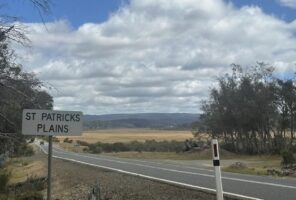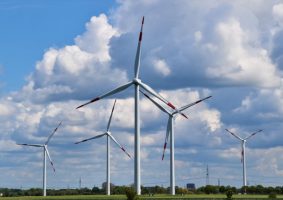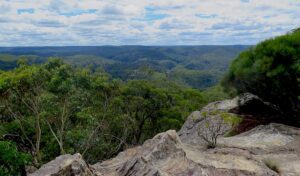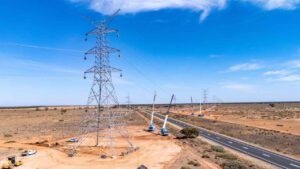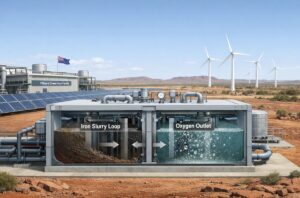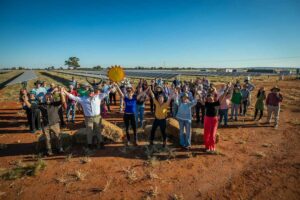Australia’s renewable energy developers may have to learn to be a little more patient. The market for renewable energy certificates remains in deep surplus, and the major utilities appear in no urgency to commission new projects.
Origin Energy on Thursday revealed that it had continued buying large-scale generation certificates, and now had enough to last to the 2015/16 financial year. Six months ago, the company said it was acquitted to around 2014/15, raising hopes that the utilities would be soon forced to market to negotiate contracts with clean energy developers. CEO Grant King said he expected the two other major retailers, AGL Energy and TRUenergy, to be in a similar position.
This apparent surplus has been reflected in the price of LGCs (large scale generation certificates), which after jumping above $42 late last year have resettled recently around $38/MWh – not enough to force the utilities to the table to strike a power purchase agreement, which most developers need to arrange the finance to pay for the project.
RenewEconomy asked King at a news conference coinciding with the company’s interim results if he thought that the renewable energy target, which calls for 20 per cent of Australia’s generation to come from renewable energy sources by 2020, was achievable, or if it should be modified, as he suggested last year when canvassing for a 25/25 target.
King said only that it would be a challenge to build the capacity required in effectively four years – after the surplus of RECs runs out. “That’s why I think it’s fairly challenging,” he said. ” So my comment, historically, has been a pragmatic one. That, if, as a consequence of trying to force so much into the market by 2020, all we do is drive up prices and costs, I don’t see what has been achieved.
“So it’s not a philosophical view, it’s just a pragmatic view, that we should really be seeking to ensure these things are done at the lowest possible cost for customers. And, if, at the end of the day, we get a policy induced tightening of costs, I’m not sure what that’s achieving.”
But technically, it could be done. “At the end of the day, I’m sure, if we can build large LNG projects, we can build lots of renewables as well.”
Much of Origin’s 3,400MW development pipeline is in Victoria, and King said the company had yet to decide whether to push its own pipeline or seek third party agreements with other developers. The company says it is progressing with its 140-turbine Stockyard project, which could deliver up to 300-500MW of capacity.
Origin recently signed a PPA for the 44MW Gunning wind farm that was completed last year near Goulburn. Its only operating wind farm is the 30MW Cullerin Range wind farm, which is located nearby. Origin said that wind farm had been operating at a capacity factor of 41 per cent in the last six months.
Of its other renewable energy ventures, the company said it will soon begin operations at its Habanero 4 well in the Cooper Basin, which will be key to its ambition to establish a pilot geothermal plant at Innamincka, then a 25MW demonstration plant and ultimately unlock hundreds of megawatts from the hot dry rocks that lie up to 5km beneath the surface.
King said “spudding” of the Habanero well would begin within the next few weeks, while the company was still deciding where to resume drilling on its “shallows” program, which is targeting less deep and less technically challenging geothermal heat lying in hot sedimentary aquifers.
Origin has also begun its geothermal development activity in Chile, where King says the company has a “robust base” for a geothermal business. It is also pursuing several joint ventures in Indonesia.
Origin is also actively pursuing a proposed massive run-of-river hydro plant in PNG, which it says could deliver clean, baseload energy to Queensland by the end of the decade. It says it has completed a study which showed the “technical feasibility” of an installation of 2000MW or more, and would now work on financial feasibility. It expects to make an investment decision by 2015.
King also made some observations about overall energy demand, noting that despite rises in peak demand, overall consumption had fallen 1.8 per cent in the last year – against an industry-forecast rise of 3.5 per cent – and was down nearly 4 per cent since 2009.
King cited a number of factors – falling industrial production, rising costs, energy efficiency measures, milder weather, and the impact of the rollout of rooftop PV (see separate story on how Origin Energy’s solar PV business has declined).
He said gas prices were likely to reach export parity in a few years – when the LNG plants begin deliveries to Asian customers – but he said this might not have much impact on Australia’s electricity prices, because of the primary role of gas as a peaking plant, when the cost of gas mattered less. He said the biggest impact could come from coal reaching export parity. Most Australian coal plants currently source coal from mines at around one third of the export price, and many of these contracts will expire in coming years.


